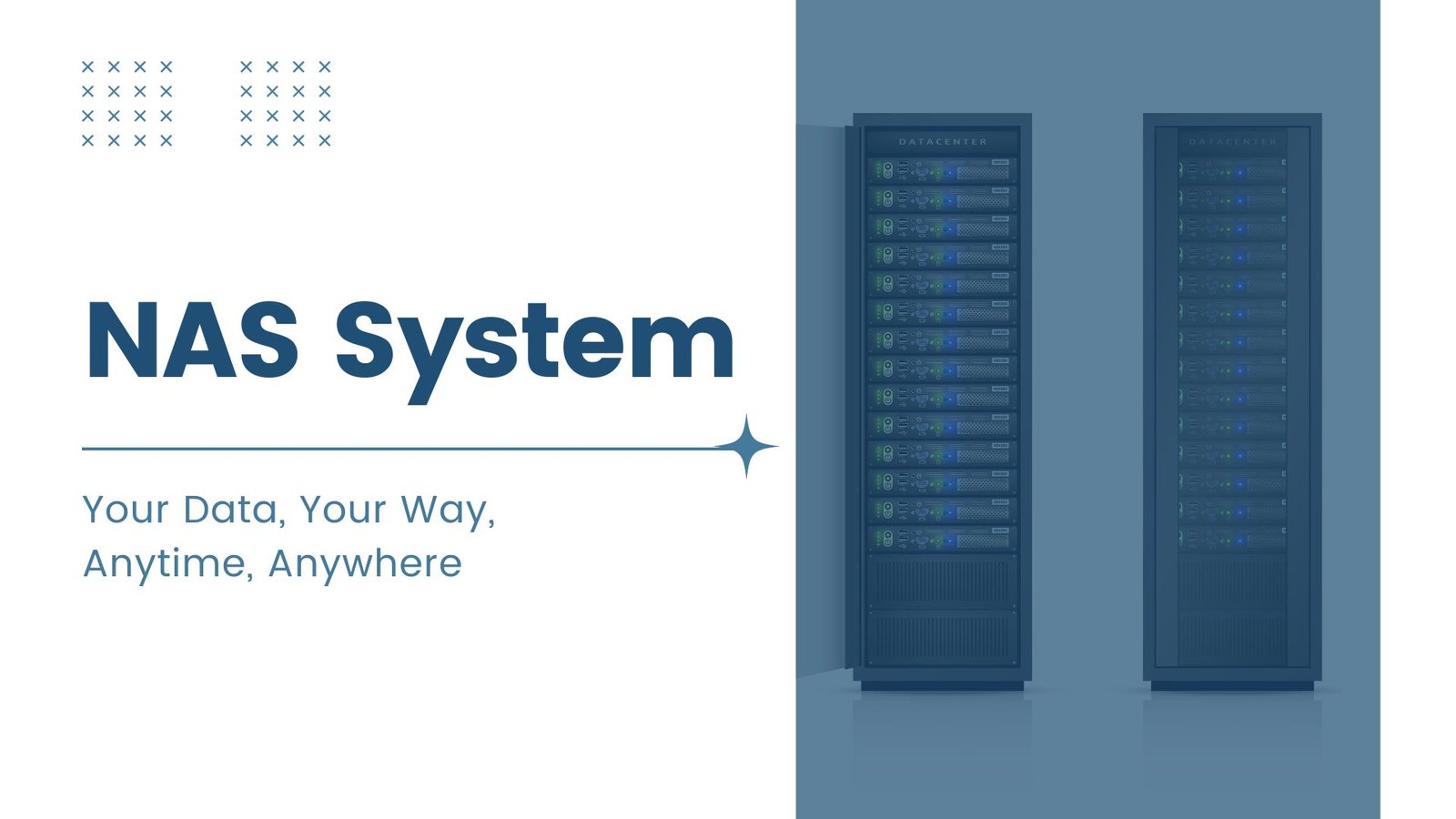The world of data storage has witnessed several advancements in the recent past. With the explosion of data, businesses and individuals have been forced to search for storage media that can meet their specific needs. Network-attached storage (NAS) has become one of the most popular storage solutions because of its flexibility and scalability. NAS systems offer significant advantages over traditional storage options with their advanced features for productivity and collaboration. In this blog post, we’ll discuss NAS storage systems and explore the advanced features that make them ideal for productivity and collaboration.
Understanding NAS Systems
NAS systems are specialized devices or network appliances that are designed to store and manage data in a centralized location. They are connected to a network, making it accessible to authorized users and devices, such as computers, smartphones, and tablets. NAS systems can range from small-scale devices suitable for home users to enterprise-grade solutions capable of serving the needs of large organizations.
Scalability
The scalability feature of NAS systems is one of their strengths. They allow you to add more storage capacity depending on your storage needs. Scalability ensures that you never run out of storage capacity, and you can easily scale up your system whenever you need more storage. With scalability, companies can easily store their data and provide seamless access to it. Businesses can use NAS solutions to store large datasets, and since these systems can scale up, they are future-proof.
Collaborative tools
NAS systems offer a range of collaborative tools that make them ideal for businesses and teams to work together. These tools include syncing, sharing, and file versioning. With syncing, changes made to files by one team member are automatically updated to all other team members, ensuring that everyone is working on the latest version of the document. With file versioning, you can easily keep track of your files’ changes, making it easy to roll back if needed.
Data backup and recovery
NAS solutions offer advanced backup and recovery features that are sometimes lacking in traditional storage systems. With data backup and recovery, you can create a copy of your data and store it in a different location. This means that you have an offsite backup, which helps protect your data from loss in the event of a disaster. NAS systems also allow you to recover your data in case you lose it. This feature ensures that your data is always available, and you can always recover it whenever you need to.
Remote access and mobility
NAS systems offer remote access, which means that you can access your data from anywhere in the world as long as you have an internet connection. This feature makes it easy for teams working remotely to share files and collaborate. NAS solutions also offer support for mobile devices, which means that you can access your data from your smartphone or tablet. This feature is especially useful for people who travel frequently and need to access their data while on the move.
Security
Data security is of utmost importance, and NAS systems offer advanced security features that help keep your data safe. These features include data encryption, user authentication, and firewalls. With data encryption, your data is protected, even if it falls into the wrong hands. User authentication ensures that only authorized personnel can access sensitive data. Firewalls help keep out hackers, malware, and other malicious software.
Benefits of NAS Systems for Productivity and Collaboration
NAS systems can offer a number of benefits for businesses in terms of productivity and collaboration, including:
- Improved efficiency: NAS systems can help businesses to improve efficiency by providing a central location to store and share files. This can help to reduce the amount of time that employees spend searching for files and sending email attachments.
- Enhanced collaboration: NAS systems can also enhance collaboration by providing tools for teams to work together on projects. This can include features such as file sharing, version control, and real-time chat.
- Increased security: NAS systems can help businesses to improve security by providing a variety of security features to protect data from unauthorized access. This is especially important for businesses that store sensitive data, such as customer records or financial information.
- Reduced costs: NAS systems can help businesses to reduce costs by eliminating the need to purchase and maintain multiple file servers. NAS systems can also help to reduce IT costs by making it easier to manage and maintain data storage infrastructure.
How to Choose a NAS System for Your Business?
When choosing a NAS system for your business, there are a few factors to consider, including:
- The size of your business: NAS systems are available in a variety of sizes to accommodate businesses of all sizes. Choose a NAS solutions system that has enough storage capacity for your needs and can support the number of users you expect to have.
- The type of data you need to store: NAS systems offer a variety of features for different types of data, such as file sharing, collaboration tools, and version control. Choose a NAS system that has the features you need to store and manage your data effectively.
- Your budget: NAS systems can range in price from a few hundred dollars to several thousand dollars. Choose a NAS system that fits your budget and provides the features you need.
Once you have considered these factors, you can start shopping for NAS systems. Be sure to compare different options before you make a purchase.
Use Cases for Advanced NAS Systems
- Small and Medium-sized Businesses (SMBs): SMBs can benefit significantly from NAS systems with advanced features. These systems provide cost-effective data storage solutions that scale as the business grows. They also facilitate collaboration among team members, which is crucial for productivity in smaller organizations.
- Creative Professionals: Photographers, videographers, and graphic designers often deal with large multimedia files. NAS systems with media streaming capabilities and ample storage space are invaluable for storing and accessing their creative work from multiple devices.
- Remote and Hybrid Workforces: In the era of remote and hybrid work, NAS systems play a pivotal role in keeping teams connected and productive. Remote workers can securely access files and collaborate with colleagues as if they were in the office.
- Home Users: NAS systems are not limited to businesses. Home users can enjoy the benefits of advanced NAS features by creating a personal cloud, hosting a home media server, or backing up important files and memories in a centralized location.
Conclusion
In conclusion, Network-Attached Storage (NAS) systems equipped with advanced features are pivotal assets for enhancing productivity and fostering seamless collaboration in today’s dynamic business landscape. These systems provide a robust foundation for efficient data storage, access, and management, catering to a wide range of users from small businesses to creative professionals and remote workers.
The scalability of NAS systems ensures that organizations can adapt to changing data storage requirements without disruptions, while features like data redundancy and protection guarantee the integrity and availability of critical information. Remote access and user management capabilities promote collaboration among dispersed teams, making them essential tools for the modern workplace.
Moreover, the integration with productivity tools, security features, and advanced search capabilities further elevates the utility of NAS systems. They not only store data but also optimize workflows, safeguard against cyber threats, and expedite data retrieval, enhancing overall efficiency.
These advanced NAS systems find application across diverse sectors, including small and medium-sized businesses, creative industries, remote workforces, and even home users seeking streamlined data management solutions. sprunki horror Endless Fun Awaits!



